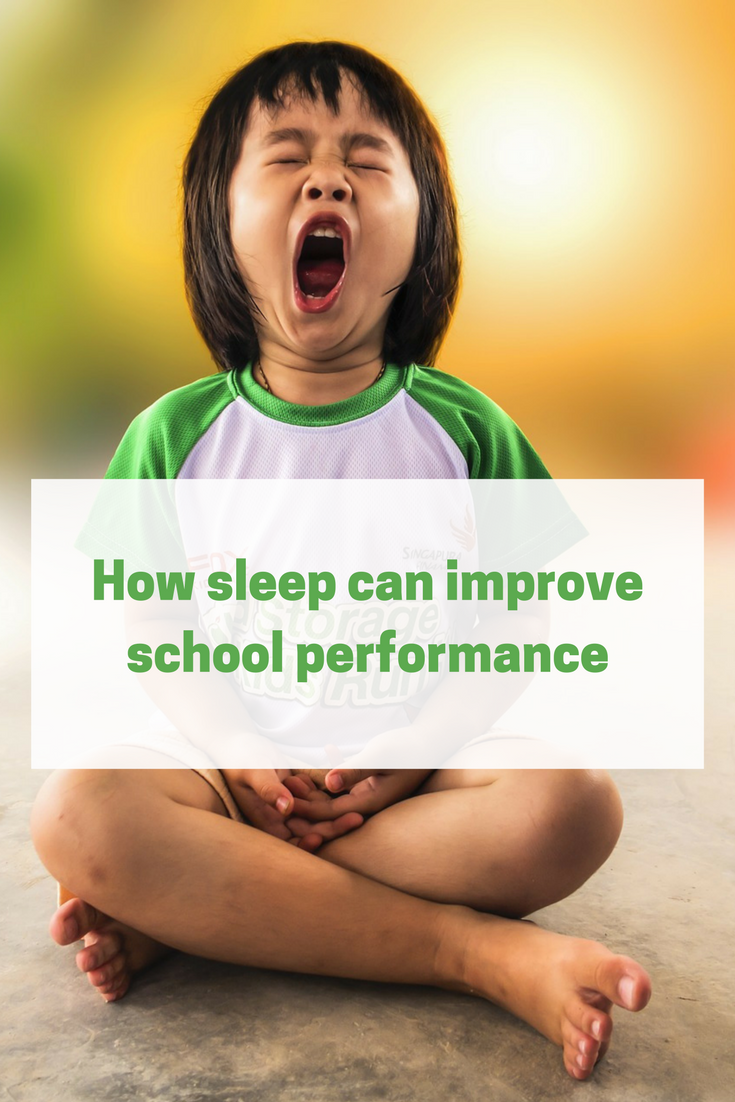Factors relating to poor sleep have been found to have a significant impact on school performance. This was observed in a study published by NCBI showing that students with less than 7 hours of sleep performed worse academically than those with adequate rest.
The major cause is the pressure that students feel when having to juggle academics, extracurricular activities, family time, and a social life. The buildup of stress can lead to sleepless nights, which can be detrimental to their schoolwork. Lack of sleep makes it harder for children to retain information. And it becomes an even bigger issue when they have to take exams.

The research
Primary and secondary school students in America are among the most sleep-deprived in the world. Research by Medical Daily found that 73% of children 9-10 years old, and 80% of 13-14 year olds were not getting enough sleep. A link was also found between the behavior and proficiency in STEM subjects as well as reading and language subjects. With a lack of sleep, students struggled in these aforementioned disciplines.
Unfortunately, in the most extreme examples this can have a detrimental effect on a child’s prospects in life if they don’t excel or at least perform to the best of their abilities in exams. Research conducted by Rand Corporation showed that getting just one extra hour of sleep can increase a child’s chances of high school graduation by 13.3% and college attendance rate by 9.6%.
In addition to the quantity of sleep children are getting, it’s also the quality that can impact academic performance. Consistent bedtime habits was highlighted in a study by Brigham and Women’s Hospital as major contributing factor to be able to get quality sleep. It was found that students with regular sleeping patterns performed better in school than those who slept irregularly.
Many think that 9-10 hours of sleep is important, however if it is disrupted sleep it will not have the same impact as a solid block of uninterrupted sleep. Additionally, frequent changes in sleeping habits can cause disrupted sleep, which will result in sleep deprivation.
Sleep and school performance
The exact effects of sleep on school performance are primarily evident through brain function. Leesa explain in a blog post on ‘Sleep and Exams’ that the recommended amount of sleep has a positive effect on memory, learning, mood, and behavior. In the same way that muscles need downtime to recover and grow after exercise, the brain also needs rest to recuperate from a day of studying or exams.
This restorative process boosts working memory for school-aged children, and a previous NEO article highlighted its connection to academic and social development. Sleep deprivation can impact this phase, which then prevents a child from absorbing information and focusing on lessons. Additionally, not getting enough rest has been shown to affect a student's problem solving and abstract reasoning skills, both of which are especially crucial during exam time.
What parents can do?
Aside from stress, the overuse of mobile devices is another major culprit behind students' sleep deprivation. Science News for Students explains that the light emitted by smartphones tricks the brain into thinking it’s still daytime, therefore making it harder to relax and fall asleep. This effect doesn’t go away immediately even after putting the phone down.
To address this behavior, parents can make sure that their children don’t take their mobile devices to bed with them. However, this policy shouldn’t stop with mobile devices, as televisions and computers have a similar effect. The best option is to make sure you children don’t use any technology at least an hour before bed to help them sleep. A book is the perfect way for your child to ease their brain into sleep.
Parents should also encourage their children to exercise regularly. Regular exercise will help them improve their sleep quality as well as short and long-term memory. Children who exercise retain information better compared to those who have relatively sedentary lifestyles.
Finally, it’s advisable for parents to consider the pressure their children are under at school. Always try and be supportive and understand the situation their in because if they feel pressured they will takes those worries to bed and it will result in sleep problems.
Both the quantity and quality of sleep are integral to a child’s development. By taking steps to ensure they get enough rest, you are also helping your child to perform to their best of their abilities from an academic standpoint.







